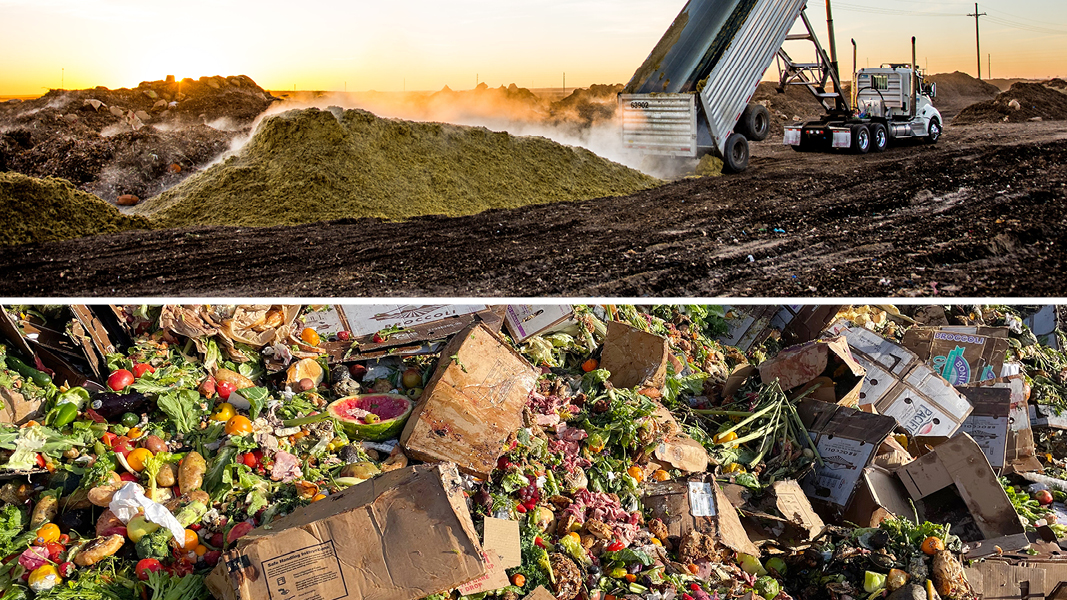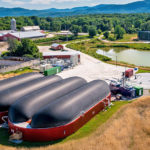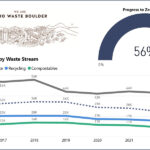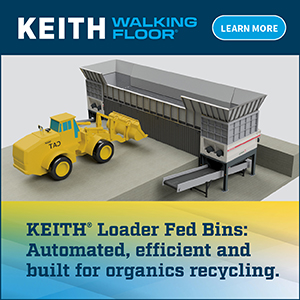Top: Feedstock deliveries to A1 Organics composting facility in Colorado. Photos courtesy of A1 Organics
The Front Range Waste Diversion (FRWD) program provides grants and technical assistance to Front Range communities in Colorado to increase recycling, composting, and waste reduction. The FRWD enterprise consists of the FRWD board of directors and program administrative staff at the Colorado Department of Public Health and Environment (CDPHE). The FRWD will be issuing a request for applications (RFA) that will focus on Organic Waste and Composting on October 25, 2021, but is releasing information about the funding to “introduce the topic of the RFA and recommend some first steps for applicants prior to publishing the RFA itself in October,” explains Sonya Hansen with CDPHE.
Applications are invited that plan to establish or expand programs, policies, and infrastructure to reduce organic waste or to increase organic waste collections, processing, and beneficial end markets and applications. Collection of organic materials — including yard debris, grass clippings, and food scraps — has grown fivefold in Colorado over the past decade to well over 500,000 tons in 2019, according to CDPHE, “yet organic waste still makes up over one-third of Colorado’s waste stream. These materials could be easily diverted into beneficial end uses such as composting or anaerobic digestion. New programs and infrastructure are needed to improve organics collection, processing, and end markets. Only seven Front Range cities provide residents with curbside yard debris or food scraps collection. Further, Colorado has only 15 compost facilities permitted to accept food waste (Class III), with just two new permits issued for food composting in the past five years despite Colorado’s growing population.”
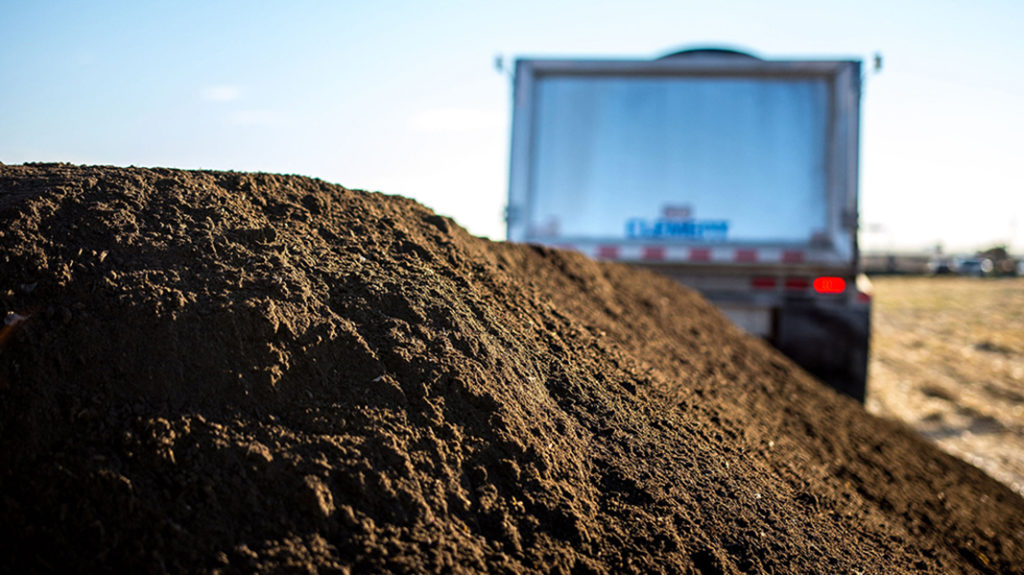
The grant funding can be used for organics collection, processing, development and expansion of end markets for compost, and other initiatives.
Eligible applications can be from affected municipalities, haulers, or for-profit or nonprofit supporting entities, and may include funding for staffing for program adoption and implementation, as well as physical infrastructure such as processing equipment. FRWD especially encourages applications for additional organic waste processing infrastructure, which includes the planning, engineering, and construction of new facilities where there is documented public support (e.g., from the local jurisdiction) for the siting of a new facility and demonstrated progress in the permitting process. A grant application also could focus on local policy/ordinances that reduce generation or increase diversion of organic waste, including programs focused on reducing food waste.
Anyone intending to pursue a permitted composting facility should contact Jace Driver at CDPHE to discuss permitting requirements and timelines before submitting a FRWD grant application. An estimated schedule of activities for the FRWD Organics RFA is available at this link.


